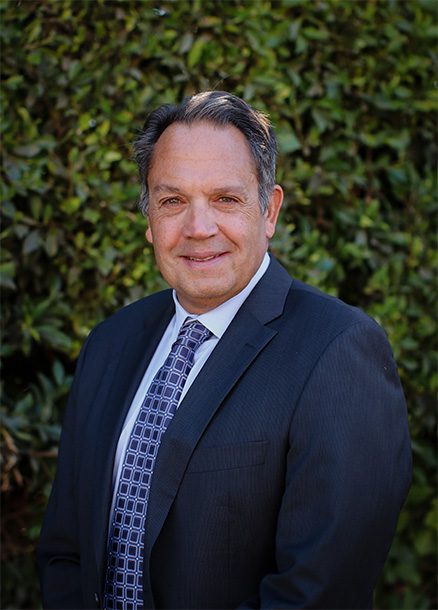Probate
Losing a family member or loved one is an extremely difficult experience for anyone and can put a person’s whole world in-flux. In addition, those left behind will now have to carry the burden of administering the decedent’s estate according to their wishes. If the deceased individual didn’t utilize estate planning strategies to execute non-probate transfers beforehand, then their family will have to pick up the mantle and attend probate court to sort out their affairs. These proceedings can be time-consuming, expensive, and records are unfortunately available and open to the public.
When an individual dies, the question of how their estate will be administered is answered by probate court depending on if they have a last will and testament and/or trust established. Probate is a legal process where the court supervises the various methods used to transfer legal title of property from the decedent’s estate to their beneficiaries or heirs. The court deals with various estate-related issues including, but not limited to the following:
- Determining if the existing last will and testament is valid
- Determining the decedent’s beneficiaries or heirs
- Calculating the worth of the decedent’s estate
- Sorting out the decadent’s financial responsibilities including debts
- Transferring assets and property that belonged to the decedent to their heirs or beneficiaries
Probate and administering an estate can be a lengthy and stressful experience. This is especially true if the estate is considered to be intestate, meaning the decedent didn’t leave a will behind. If you have questions about probate and need assistance with a loved one’s estate, then consult with the talented California probate lawyers at Botti & Morison.
Probate Attorney California, Ventura
The probate process may appear relatively straightforward at a first glance, but in reality, that couldn’t be further from the truth. Probate requires a lot of paperwork, time, knowledge of California laws, and unexpected complications are almost always guaranteed to appear. Not to mention the exorbitant fees associated with probate court. If you don’t have the proper guidance and knowledge, your family could end up forking over thousands and thousands of dollars just to settle your loved one’s affairs.
Ensure your family member or loved one’s estate is properly administered with the help from the legal team at Botti & Morison. With over 90 years of experience under their belts, our skilled and talented California probate administration lawyers, Chris Botti and Paul Morison, can ensure your loved one’s estate is properly administered according to their wishes. If you’re still in the middle of planning for your estate, our team can even take specific steps through estate planning to guarantee your family avoids probate court altogether.
Contact Botti & Morison at (877) 585-1885 to set up your first consultation. Botti & Morison has several locations in the state of California including Ventura, Westlake Village, Santa Barbara, San Luis Obispo, and Bakersfield.
Information Center
What is Probate in California?
Many people use and have heard the term “probate,” however few know what it truly entails. Probate is a court-supervised legal process where the decedent’s assets are gathered, identified, and then redistributed according to California law or the terms of a will. This process also includes sorting out the decedent’s financial responsibilities such as paying their taxes, debts, and other expenses. Once the assets are inventoried and financial responsibilities met, probate court will distribute the balance to the decedent’s beneficiaries or heirs. Probate is also where any eligible person can challenge the validity of a will/codicil for various reasons such as undue influence.
If an individual dies with a last will and testament, then they are considered to have died testate. Those without a will are considered to have died intestate. Probate court will operate according to the decedent’s will if they consider it valid. Any assets or accounts left out of the last will and testament will be distributed according to California’s probate laws. It’s important to note that California Prob. Code § 8200 states when an individual dies the person in possession of their will must deposit it to the court within 30 days.
When is Probate Required in California?
Probate is necessary when an individual dies without the proper estate planning documents and the gross value of their primary residence in their estate exceeds $750,000 as established by an approved independent Probate Court Referee or the value of all other assets (including any other real estate) in their estate exceeds $184,500. For estates below this amount, the State of California gives executors the option to pursue simplified probate procedures instead of the full formal process. The executor can collect property and distribute assets to the estate’s heirs by using a declaration if the estate meets California’s simplified procedure requirements.
However, it’s important to understand these procedures have certain rules.
- Cannot use it to distribute real property
- Cannot be used for property that would automatically go to the surviving spouse
- You cannot collect or distribute assets until 40 days after the decedent dies
- The written declaration must be given to the person or agency that has the property or is in charge of the transfer of the property
Cost of Probate California
One of the main reasons estate planning professionals would advise avoiding probate is the exorbitant fees behind the process. The statutory fees alone for probate could take a sizable bite out of you or your loved one’s estate. That is because the cost of probating an estate is based on the estate’s gross asset value. The fees are 4% for the first $100,000 of the estate, 3% of the next $100,000, 2% of the next $800,000, 1% of the next $9,000,000, and 0.5% of the next $15,000,000. If the estate is larger than $25,000,000, then the court will use its best judgement to determine a fee.
Listed below are the statutory fees used to compensate both attorneys and the executor in a probate case. In most cases, both the attorney and executory will receive a fee and the amount paid will be double of what is shown below.
| SIZE OF ESTATE | STATUTORY FEE |
|---|---|
| $150,000 | $6,000 |
| $200,000 | $7,000 |
| $300,000 | $9,000 |
| $400,000 | $11,000 |
| $500,000 | $13,000 |
| $600,000 | $15,000 |
| $700,000 | $17,000 |
| $800,000 | $19,000 |
| $900,000 | $21,000 |
| $1,000,000 | $23,000 |
| $2,000,000 | $33,000 |
Probate referees appraise estates brought to the court and determine the fair market value of the decedent’s assets. It’s important to understand the fair market value doesn’t deduct for mortgages or any other debts, which can result in an appraisal of the property that is higher than the equity that the deceased person owned in the property. These referees also receive a fee based on 0.1% of the assets appraised.
In addition to the statutory fees above, you may face other costs when in probate court. Court filing fees, appraisal fees, publication costs, and other miscellaneous fees may be required.
How Long Does Probate Take in California?
Probate proceedings, unfortunately, have garnered an infamous reputation of taking forever to resolve. The average length of time it takes for an estate to undergo the process of probate is around nine months, but this can change based on a variety of factors. For some families, probate can take up to a year or even longer to finish.
Various circumstances could delay an efficient processing of an estate in probate. If the estate has multiple beneficiaries, the process will ultimately be slower as the estate’s personal representative must go through multiple channels to ensure they receive assets bestowed to them. Not to mention the more beneficiaries, the higher the chances are they will argue about the distribution or management of the estate.
Other issues that could slow down the probate process include, but are not limited to:
- A beneficiary contests the contents within the will
- No last will and testament left behind by the decedent
- If the estate owed taxes, it may take the IRS up to 8 months to respond
- Complicated assets that require the work of an appraiser to be properly distributed
How to Avoid Probate in California
Probate is an extremely expensive and laborious process with little reward, which is why many estate planning professionals would advise you take additional steps to avoid it. Probate isn’t necessary for every estate in the State of California, and if you’re proactive with your estate planning you can sidestep the process completely.
There are several estate planning methods you can utilize to ensure your family doesn’t have to go through probate and what will work for you will depend on your current familial and financial circumstances. Any assets owned in joint tenancy with another person will not need to pass through probate as it will go to the surviving owner once you die. While this is an acceptable solution for some, it’s not ideal for most estate plans.
Married couples can obtain a “double step-up” in basis in the decedent’s half of community property as well as the survivor’s half, but most fail to take advantage of this tremendous tax benefit because they’re keeping assets in joint tenancy. It’s also important to remember that if both you and your spouse die, then there is no longer a joint tenant to pass the interest to.
Any asset held in a revocable living trust or irrevocable trust is also protected from probate. Most estate planning experts would recommend this method as a trust provides a lot more security to your assets than owning them in joint tenancy. While each type has its pros and cons, most individuals and families pursue a living trust over an irrevocable trust because the settlor can modify or cancel provisions within the trust at any time while they’re alive.
Listed below are the various advantages a living trust may offer if you’re looking to avoid probate.
- No 120-day waiting period for notice of creditors
- You don’t have to file a petition and/or reports to probate court
- Any real property or income can be immediately distributed according to the provisions of the Trust
- No publication fees, executor fees, or court costs
- Pick out a guardian if you die with minor children as dependents
- Information regarding the decedent’s estate remains confidential
- Very strong “no content” clauses can be used to ensure a Trust isn’t easily challenged
- You can avoid out of state probate
- Incredible tax savings potential
- Avoid any delays of up to two years or more to settle your estate
- Allows your family to avoid filing for conservatorship if you become incapacitated
Additional Resources
Probate Laws in California
Visit the official website for California’s Statutes to find more information about the probate process for the State. Access the site to learn more about the probate process step-by-step, the importance of powers of attorney, estate planning information about health care decisions when incapacitated, and more.
Probate FAQ | Ventura County
Visit the official website for Ventura County courts to find answers to frequently asked probate questions for the area. Access the site to learn what the filing fee is for a Petition for Probate, how to submit documents electronically, if a telephonic or remote appearance is available, what forms you may need to get started, and other valuable information you may need.
California Probate Administration Attorney | Estate Planning, Wills and Trusts
For many, being tasked with the overreaching responsibility of handling all the affairs of a loved one is incredibly overwhelming. Our knowledgeable and skilled legal team at Botti & Morison are committed to simplifying the process. That way you can concentrate on what matters and can rest assured all the heavy lifting for the estate is done properly. Plus, our attorneys have over 90 years of combined experience with probate administration and estate planning. Their knowledge and extensive resources will be incredibly valuable if an estate-related issue occurs.
Probate Attorneys in California
Our probate lawyers have decades of experience helping families and estate administrators. Call today at (877) 585-1885 to set up your first consultation free of charge.
Botti & Morison accepts clients throughout California and has offices in Ventura County, San Luis Obispo County, Los Angeles County, Kern County, and Santa Barbara County.






